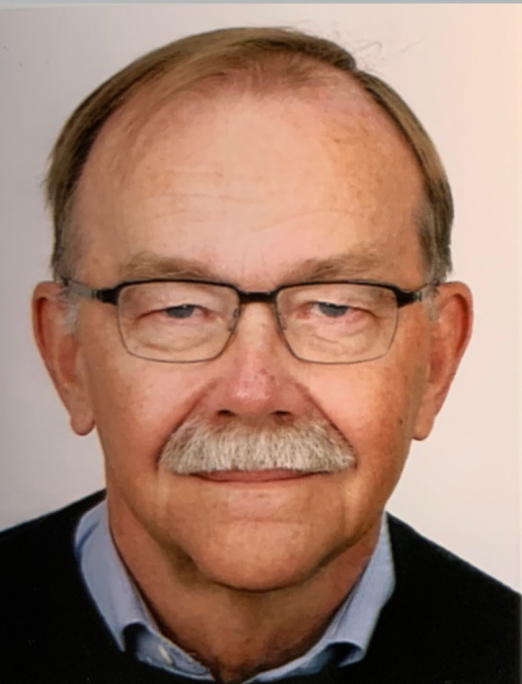We are delighted to dedicate this 16th NRM edition to Prof. Dr. Horst Lenske, whose inspiring participation has extensively enriched the Varenna Conference series

Horst Lenske was born on March 6, 1950, in Bad Godesberg, now part of the City of Bonn, Germany. After graduating from high school and completing his military service, he studied physics at the University of Bonn, obtaining his Diplom in 1976. As a doctoral student at the University of Bonn and in the group of Amand Fässler at Forschungszentrum (FZ) (at that time KFA) Jülich, he investigated isospin symmetry violations in nuclear reactions. In July 1979 he was promoted to Dr. rer. nat. at the University of Bonn, based on his dissertation on “Isospin Violation in Deuteron-Induced Reactions”.
From 1979 to 1981 Horst Lenske stayed as a Postdoc at the University of Texas at Austin, working with Taro Tamura on the theory of nuclear pre-equilibrium reactions, known as the TUL theory. In 1981 he returned to Germany to work at the Ludwig-Maximilian University in Munich, where he completed his habilitation in 1987 and held the position of Assistant Professor from 1989 to 1992. In close collaboration with Hermann Wolter, he developed a microscopic theory of pre-equilibrium and direct nuclear reactions. As major results, the first fully microscopic, quantal descriptions of heavy ion pre-equilibrium and charge exchange reactions were achieved, hitherto treated primarily by means of classical or semi-classical approaches.
In fall 1992 Horst Lenske moved to Justus-Liebig University Gießen, being in charge of a chair in theoretical physics, initially as an Extraordinary (apl.) Professor and, from 2006 onwards, as an Endowed GSI Professor. After retirement in 2015, he was awarded a research professorship until 2016.
Horst Lenske is still attached to the Gießen Institut für Theoretische Physik by ongoing research grants and to GSI Darmstadt as council member of NUSTAR and theory advisor for PANDA. From 1995 on, he was involved in the preparation of the FAIR project as convener for nuclear theory. From 2003 to 2010, he was member and chairman of the advisory committee for hadron and nuclear physics at the German Federal Ministry for Education and Research. He is a referee for funding agencies in Germany and other EU countries, the European Commission, and outside Europe. Among his duties, peer reviewing is still an important and exciting activity.
At the Gießen Institut für Theoretische Physik, Horst Lenske set up and led a large and highly motivated research group of doctoral students and postdocs. Their research projects addressed a broad spectrum of topics, including nuclear structure and reaction theory for stable and exotic halo nuclei, astrophysical studies, Dirac-Brueckner and relativistic mean-field theory for nuclei and hypernuclei, and strangeness and charm meson production in reactions on nucleons and nuclei. He supervised more than 20 PhD dissertations. Since 2015, he is a member of the NUMEN collaboration, investigating heavy ion double charge exchange reactions as probes for nuclear matrix elements of double beta decay. His work is documented in many original research papers, and summarized in several review articles:
- Density dependent relativistic field theory, Lect. Notes Phys. 641 (2004) 147;
- Baryons and baryon resonances in nuclear matter, Prog.Part.Nucl.Phys. 98 (2018) 119;
- Hyperons and Resonances in Nuclear Matter, Lect.Notes Phys. 948 (2018) 161;
- Dissolution of shell structures and the polarizability of dripline nuclei, Eur.Phys J. A 55 (2019), 238;
- Heavy ion charge exchange reactions as probes for nuclear beta-decay, Prog.Part.Nucl.Phys. 109 (2019) 103716;
- Theory and applications of nuclear direct reactions, Int.J.Mod.Phys.E 30 (2021) 10, 2130010;
- Self-consistent methods for structure and production of heavy and superheavy nuclei, Eur.Phys.J.A 57 (2021) 3, 89.
Life besides physics: Rowing; for years spending holidays on bike tours with his wife, exploring France, the Alps, the coastal regions of the North Sea and the Baltic Sea; long walks and hikes; hosting dinner parties for and with friends, including the preparation and cooking of meals.
His motto: "A physics problem a day keeps the doctor away."